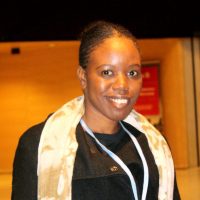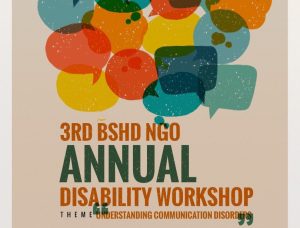Human beings are the only species that have the ability to form and articulate spoken
language. The human brain is expected to learn language and communication skills before
the age of five. If this milestone is not reached human beings are often classified as having
speech and language disorders. These speech and language disorders are defined as problems in communication and related areas such as oral motor function. These disorders
include stuttering, impaired articulation, language and voice impairments that adversely
affects a child’s educational performance. The delays and disorders may range from simple
sound substitutions to the inability to understand or use language correctly. A child’s
communication is considered delayed if he/she is noticeably behind their peers in acquiring
speech. In some cases some children are more receptive and understand language but are
unable to express themselves orally.
Speech disorders manifest as challenges in producing speech sounds or voice quality issues. Symptoms vary among individuals, with some experiencing interruptions in speech flow (dysfluency) like stuttering, while others face difficulties in sound formation (articulation or phonological disorders). On the other hand, language disorders involve impairments in understanding or using words contextually, whether verbally or non-verbally. This often results in improper word usage, difficulty expressing ideas, and inappropriate grammatical patterns. Children with language learning disabilities or developmental language delays may exhibit these symptoms, with some struggling to comprehend spoken words despite hearing them.
The causes of speech and language disorders are not always clear, although specialists speculate various factors such as hearing loss, neurological disorders, brain injury, mental retardation, substance abuse, and physical impairments.In Botswana, while the exact number of children with disabilities remains uncertain, statistics indicate that a significant portion of the population, at least 58,976 individuals, are living with disabilities. Speech impairment accounts for approximately 9.9% of this demographic, as per 2001 statistics. Additionally, 45.4% of pre-primary pupils with special education needs had speech impairments in 2013, with the highest number enrolled in pre-primary schools being 104 out of 229 children.
Given the prevalence of speech impairments among young children, it is essential to delve into the concepts of language and speech disorders. This year’s workshop focused primarily on speech and language disorders, alongside related conditions like hearing impairment and physical disorders that impact communication.
The objectives of the workshop were as follows:
- Define communication disorders.
- Explain the distinction between language and speech disorders.
- Explore various types of speech and language disorders, including stuttering, impaired articulation, and voice or language impairment.
- Investigate the relationship between hearing impairment, physical disorders, and speech and language development.
- Discuss the impact of learning a second language on language disorders. Provide insights into speech therapy and speech-language pathology.
- Enhance understanding of English language components and teaching strategies for learners with language disorders.
- Introduce assistive technology for language and speech development remediation.
- Explore remedial strategies for learners struggling with language and speech disorders.
Our speakers were:
- Mr Thato Moruti – Master of Ceremony
- Hon. Sedirwa Kgoroba – Welcome Remarks
- Ms Tshepiso Van Zyl – Opening Speech
- Professor Sourav Mukhopadhyay – Overview of Communication Disorders
- Kelesitse Keakitse – Short Story Reading
- Anitah Moeng – Medical Aspects and Assessment of Speech Disorders
- Kutlwelo Mariri – Running a School for PWDs and Teaching Children with Speech Communication Disorders 9. Thato Heather – Poetry
- Ms Duduetsang Moroka – Overview on the Work of CRC
- Ms Kutlwano Seeletso – Personal Experiences with Speech Therapy
- Leshwane Mauco – Introduction to Applied Behaviour Analysis and Verbal Behaviour
- Boago – Overview of the Botswana Association of Stuttering
- Thabiso Shapi – Stuttering: Personal Experience
- Sharon Tshipa – Vote of Thanks
- Tshepiso Van Zyl – Awarding of Certificates & Closing Prayer


